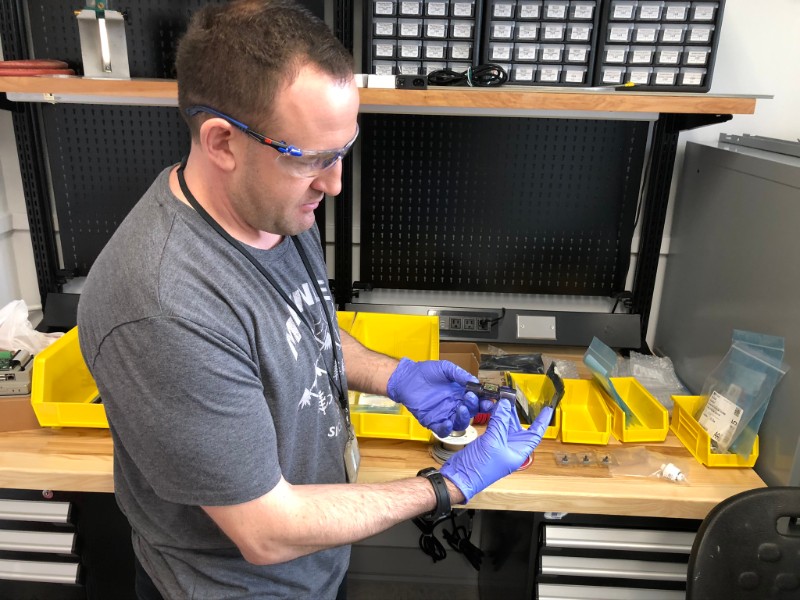Canadian Nuclear Laboratories, or CNL, could be considered one of Eastern Ontario’s best-kept secrets, tucked away in the Upper Ottawa Valley community of Chalk River. But that has changed with its COVID-19 response.
CNL is part of a consortium working to develop an easy-to-produce ventilator using off-the-shelf, easily accessible parts available from within Canada. This is following the lead of a similar initiative already undertaken in Italy to deal with that country’s critical shortage of this vital piece of medical equipment.
Joe McBrearty, president and CEO of CNL, said the goal is to have a design ready to turn over to domestic manufacturers by the end of this month. This is no small feat. The development and market readiness of any device for medical use is subject to stringent regulation by Health Canada. The process can often take years. The consortium partners, the federal government and industry are working overtime to address all the related technical, legal and regulatory challenges.
(Sponsored)

OBJ launches the 2026 Executive Report on Cornwall
Cornwall has emerged as one of Eastern Ontario’s most compelling locations for business investment, thanks to a combination of affordability, strategic positioning, and a steadily growing economic base.

Advanced Business Interiors (ABI) is Making Space Work in Ottawa
ABI’s journey began with a small team on Thurston Drive in 1989; four locations and almost 37 years later, Advanced Business Interiors is now one of the largest office furniture
“The collaborative effort across many organizations and multiple disciplines has really shown the collaboration that is necessary to move us into the post-COVID-19 world,” McBrearty said. “Collaboration is the foundation for scientific discovery.”
CNL didn’t lack volunteers eager to take part in the project.
“The enthusiasm and dedication of our workforce here really came through,” McBrearty said.
CNL operates the largest laboratory in Canada. Operations are found across the country, but the single largest facility is in Chalk River, spanning 9,100 acres.
For decades, CNL led research into the safe use of nuclear resources for power generation, medical use and other applications. Until recently, it operated a reactor in Chalk River that produced medical isotopes that were used in more than 20 million diagnostic procedures around the globe every year as well as for cancer treatment.
Today, CNL’s attention has shifted to environmental stewardship, R&D for small modular reactors as a low-carbon alternative to fossil fuels and to pioneering new cancer treatments using alpha radiation.

All of which means there is a substantial amount of engineering and technical brainpower under CNL’s roof, across many disciplines. Roughly 2,800 people work at the Chalk River lab. While the ventilator project is a big one, McBrearty emphasizes that the team has mustered to support its community in other ways, too.
Thousands of pieces of personal protective equipment have been donated to local hospitals and first responders. Enterprising staff took home with them 3D printers so that they could produce much-needed face shields while following physical-distancing protocols. Staff with extensive expertise in contamination control have created social media videos to help people understand the basics of wearing and safely disposing of PPE items.
“COVID-19 has allowed our folks here to show what they are really made of,” McBrearty said.





